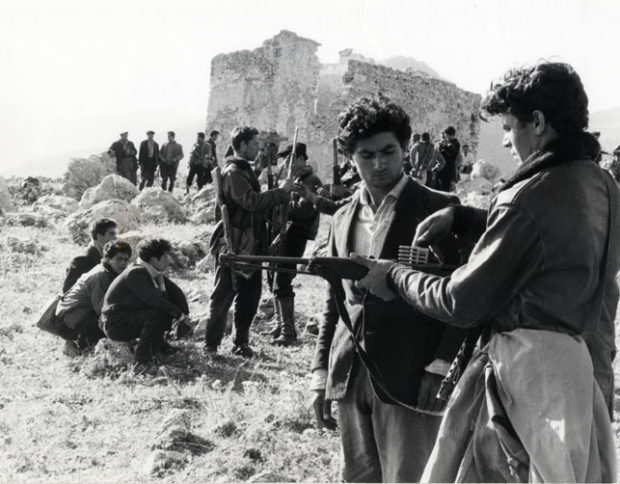
 Francesco Rosi’s 1962 film uses the life of the titular Mafia bandit as a stepping-off point for an examination of postwar Sicilian history.
Francesco Rosi’s 1962 film uses the life of the titular Mafia bandit as a stepping-off point for an examination of postwar Sicilian history.
A man lies dead in a courtyard of a Sicilian town. The police stand around the body, taking notes. The dead man is notorious criminal Salvatore Giuliano. Soon reporters arrive, clamoring for position, shooting photos. The cops struggle to keep them under control. Thus begins the 1962 film Salvatore Giuliano, directed by Francesco Rosi, an exploration in fictional form of the life and death of an actual Mafia figure.
Now we might expect to meet Giuliano and see his life dramatized for us. But here Rosi does something different, something that hadn’t been tried before. He circles around Giuliano, showing his environment, the social milieu and political factors leading to his rise, the effects of his actions and those of his followers on others, and an explosive trial of certain of his associates after his death that reveals hidden connections between the Mafia and the Sicilian and Italian governments.
The time sequence moves back and forth in an elusive pattern of events and correspondences. But Giuliano himself is only seen in very brief glimpses. The film, in other words, only uses the title character as a stepping-off point for various and conflicting versions of modern Sicilian history. Rosi deliberately works against the usual strategy of clarifying events and organizing them into a narrative that reveals the truth. Watching the film is more like the experience of actually living in the midst of historical events, when a spectator has only a limited ability to comprehend, and only witnesses parts of what happened. This is combined with other events that create conflicting impressions. The film is like a fallible human detective rather than the omniscient one we are used to, and this ground-level position creates a very peculiar and interesting experience.
Rosi shot the film in the same village where the real Giuliano came from, using non-professional Sicilian actors. The style is naturalistic, with a sure feel for the way people behave and for landscape. The fights between the outlaws and the police in the hills, for example, and the crowd scenes in the village, are marvelously done. The realistic texture is greatly aided by the superb black-and-white photography of Gianni De Venanzo.
We do learn some things along the way. Bandits and organized crime figures were recruited by the Allies to help drive Mussolini’s army out of Sicily. Less known is the fact that after the war, elements in the police and military collaborated with the Mafia in order to put down the Communists. This last piece of information made the film very controversial in Italy, even spurring a government investigation.
The movie doesn’t give clear answers, or anyone to “root” for. But there is a great theme running through it: the idea of justice, and the tragedy of a society’s failure to achieve it. Salvatore Guiliano stimulates thought and further questioning–it disturbs our sleep, so to speak, and in this it shows true greatness.

